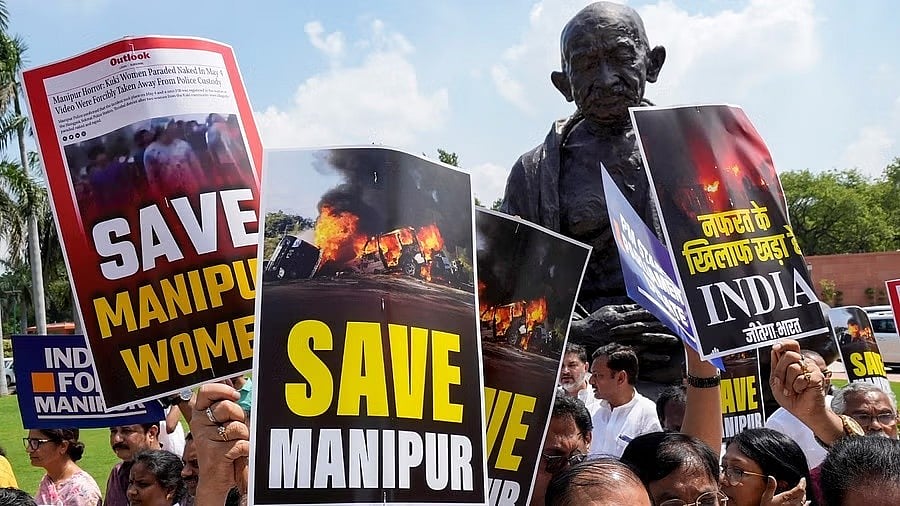
Protest over ethnic violence in Manipur. (Image for representation)
Credit: PTI File Photo
Two years after ethnic violence erupted and derailed life in Manipur, the state is still looking for peace and normalcy. The violence that broke out at a march held by members of the Kuki community to protest against a high court ruling that directed the state government to consider the inclusion of Meiteis in the ST category has spread and continued, plunging the state into turmoil.
Manipur is now geographically divided on racial lines and members of one community are not allowed entry into the other’s territory. The society has been militarised and arms and ammunition looted from government armouries are in free circulation. Normal life has been paralysed for long stretches. Over 250 people have been killed and about 60,000 people displaced from their homes are living in camps.
The central and state governments have consistently failed to manage the situation. Former chief minister N Biren Singh only aggravated the crisis. Singh, a member of the Meitei community, acted and spoke as a leader of the community, not of the state.
The Central government had him resign in February this year after he had done much damage. Though there was hope that effective steps would be taken during the President’s rule to remedy the situation, no such initiative has been taken. There was a round of talks in Delhi that was not considered representative – it also failed to make progress with the rival sides sticking to their positions. The Kukis have demanded a separate administrative region, a demand strongly opposed by the Meiteis. The Governor, A K Bhalla, is a former home secretary who is considered to understand the state well, but he has not made any impact.
The central government’s attitude has been one of indifference and apathy. Prime Minister Narendra Modi has not visited the state in the last two years. Parliament has not found time to discuss the situation. Unless steps are taken to bring the two sides together and build bridges between them, peace and normalcy will continue to elude the state. Violence still erupts periodically and there is a pervasive atmosphere of tension and suspicion. A state and its people should not be left to bleed for such a long time with no one taking the responsibility to repair the damage and heal the wounds. The complete shutdown in both the Kuki and Meitei areas on May 3 – the day which marked two years of the conflict – is a striking response to the situation by the people of the state.
